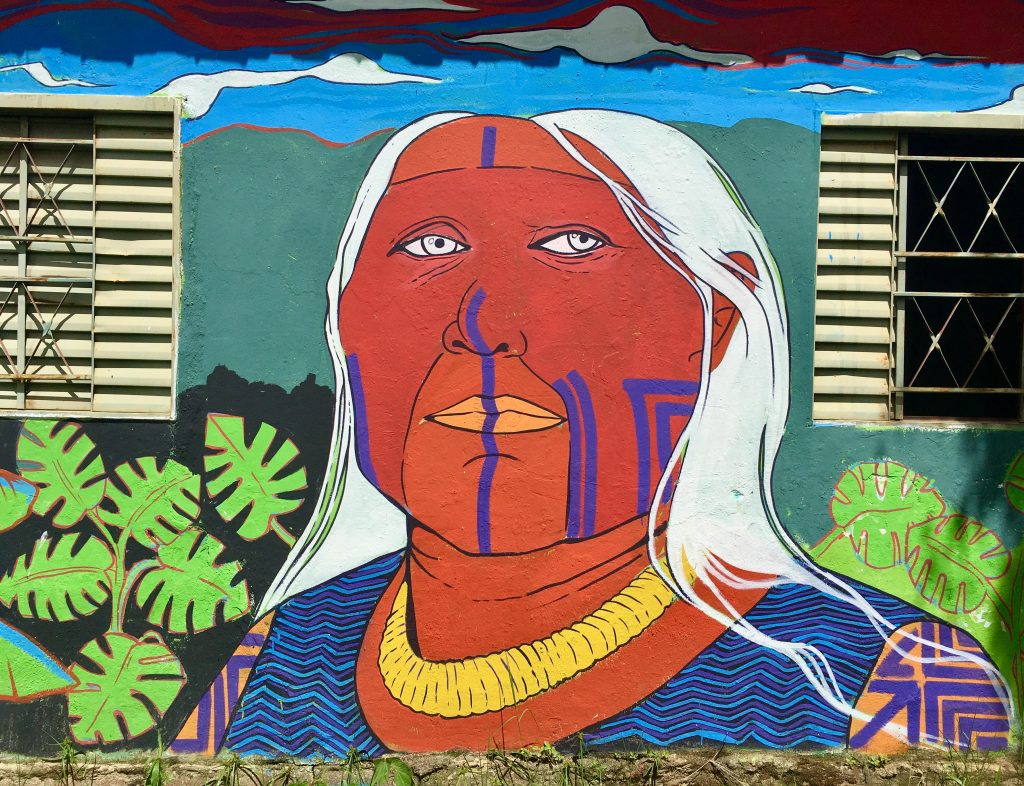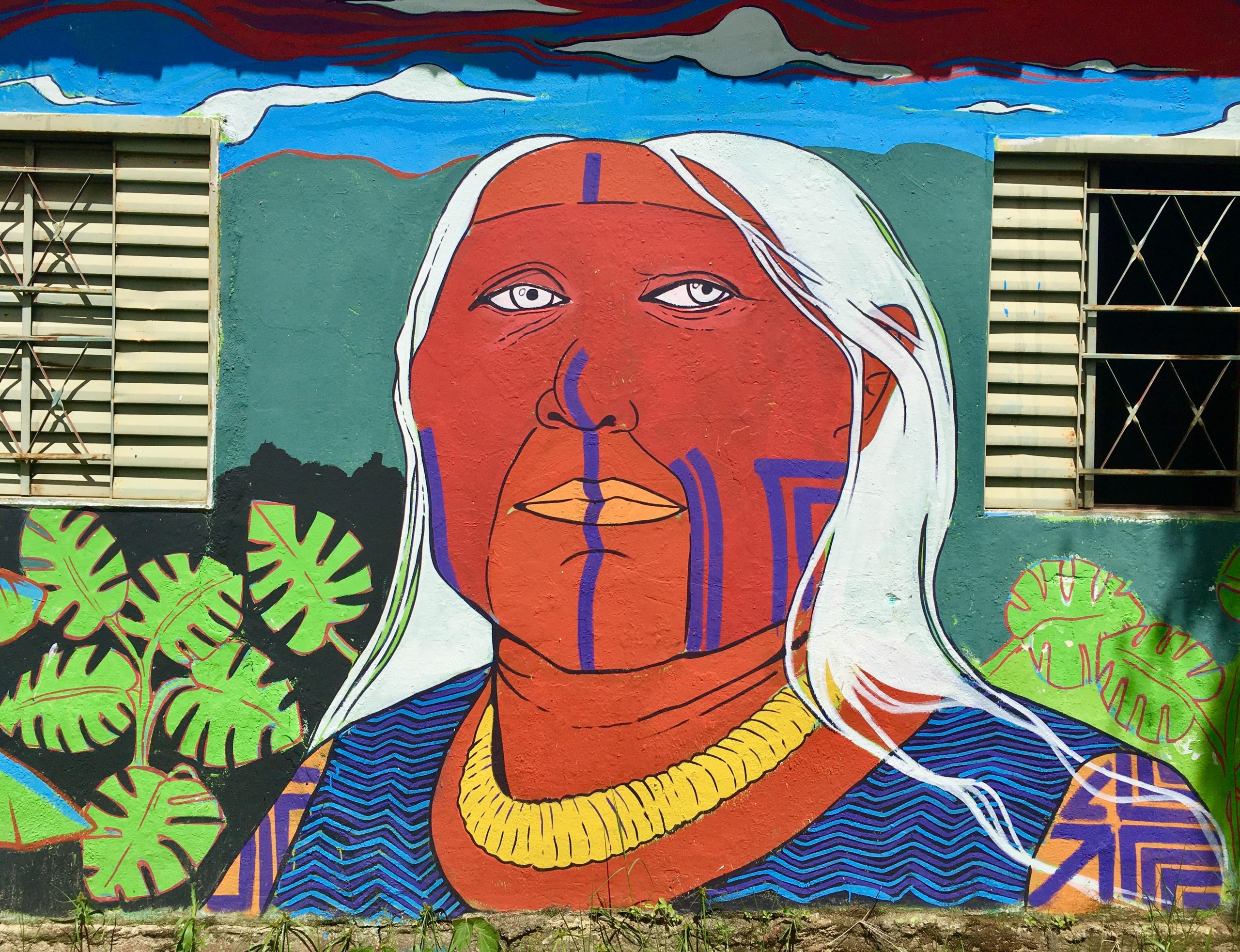Learning from Buen Vivir

Indonesia is an ambitious nation that is unwilling to think about alternative methods of development. Post-Reformasi, Indonesia only dared to voice ideas on ‘developing from the margins,’ without actually discussing what this idea encompasses and how it should be interpreted. True, we have our much vaunted ‘Musrenbang’ (musyawarah perencanaan pembangunan/development planning meeting) all the way to the village level, but in reality, this grand project of development is propped up by an exploitative economy, controlled by an elite few with oligarchic relations, which marginalizes nature and humans.
At the same time, colleagues in Latin America have been better trained in constructing alternative discourses and gradually finding patterns of implementation. Many Indonesian researchers are familiar with the thinking of Arturo Escobar and other Latin American postcolonial thinkers, such as Walter Mignolo, Boaventoure de Sousa, and others. Their critique on Western-style development and modernist dogma is highly relevant to the Indonesian condition. Furthermore, in many fields, Indonesia and Latin American nations share a colonial history, and were geopolitical victims during the Cold War—in a nutshell, neocolonialism.
The crucial differentiation is that Latin American thinkers are already several steps ahead, especially in the effort to propose alternative notions. They have proposed concepts such as the pluriverse, as well as the latest, Vivir Bien.[1]
Bolivia and Ecuador are two Latin American nations that have been the most concrete in interpreting vivir bien as a developmental trajectory. Bolivia, specifically, has formally incorporated the philosophy of vivir bien into its constitution and development plans. This is made possible by the leadership of Evo Morales, a head of state who indeed comes from an indigenous background, and represents other communities and social movements. This is one fact that is generally internationally overlooked when looking at Bolivia, so as to perceive the region as ‘backwards’—when in fact, they are much more progressive than Brazil, which has prided itself as being a part of BRICS.
In her journal article, Eija Maria Ranta reflects upon the journey of adopting vivir bien from a philosophy into a trajectory of state and development. In her article, published in Third World Quarterly, Ranta asks “to what extent this egalitarian utopian category can be translated into ‘nowtopia’, concrete alternative practices in the present, within the nation-state structure” that we all know.
It is here that we must observe the dynamics at work, both inside and outside the political realm, in order to understand the limits and potentials to a utopian notion when it has been adopted by an institution that we call the state. Bolivia is a true case study, a living laboratory in which the state has adopted a philosophy that originated from the grassroots, was advocated by a social movement, and was agreed upon democratically. Ideally, this is a perfect recipe for development that accommodates all parties.
This is interesting due to 1) the lack of any other example on earth which has the same level of courage in implementing a bottom-up approach to development, and 2) the many structural similarities between Indonesia and other Latin American nations as former colonies.
Contradiction
Alongside other empowering concepts such as participation, transparency, community-based development, and equality, a complication emerges when it is taken over by the state. Two possibilities arise when the state chooses to both acknowledge and adopt.
First, it becomes a new form of exclusion, due to the state being unable to adopt it in a comprehensive and unconditionally equitable manner. Second, it becomes reduced to a simple jargon, and interpreted into merely ceremonial or formal policies or programs. To use a more common wording, the state only carries it out performatively in order to present a surface-level commitment, without actually implementing it comprehensively along all policy avenues.
There is a difference between these two limitations. In the first problem, the state is unable to implement it on all of its citizens. In the second problem, the state is unable to implement it on itself, wherein it becomes a sectoral policy.
According to Eija Maria Ranta, in the case of Bolivia, Vivir Bien actually emphasized the demarcation between state and civil society, as if to underline the authority of the state in implementing a philosophy that is meant to be inclusive and plural. A relation that has the potential to become very fluid due to the inclusion of civil society, comes off as needing to be reemphasized by the state as the authority of development. This demarcation was not imagined by vivir bien. In Ranta’s words, “instead of decolonizing the state, it is used to discipline the masses.”
Closing
There is much local dynamics in Bolivia that we cannot yet completely understand. However, at the very least, what we can learn from Bolivia includes, first of all, how local philosophies can find acknowledgement, and no longer limited to principles voiced by indigenous communities.
In Indonesia, local practices tend to be trivialized because they are seen to exhibit a backwardness, as opposed to a modern way of thinking. For the most part, the modernization that we desire only displays an epistemological inferiority—due to being afraid to be deemed backwards and not following the tried and proven recipes for development. These local practices are seen as not being based upon scientific foundations or methods.
On the contrary, several indigenous legal principles such as Sasi can actually become principles for alternative development. If Sasi can be accepted as a base for the possibility of local development, then that is more than enough. In any case, the strongest asset in seeking an alternative development lies in the pluriverse: this should be the common tie between Indonesia and our colleagues in Latin America.
In the Indonesian context, there are too many challenges for a developmental principle that is encompassed in local practices to be accepted at the national level. Even if it manages to enter into contestation at the national level, it is likely to become coopted by the elite, with various political interests that deny the voices of common people.
[1] The term Vivir Bien is also known as Buen Vivir in Ecuador, and was popularized among others by Arturo Escobar in his book, Encountering Development. Because this text uses Bolivia as an example, the term used here is Vivir Bien.


